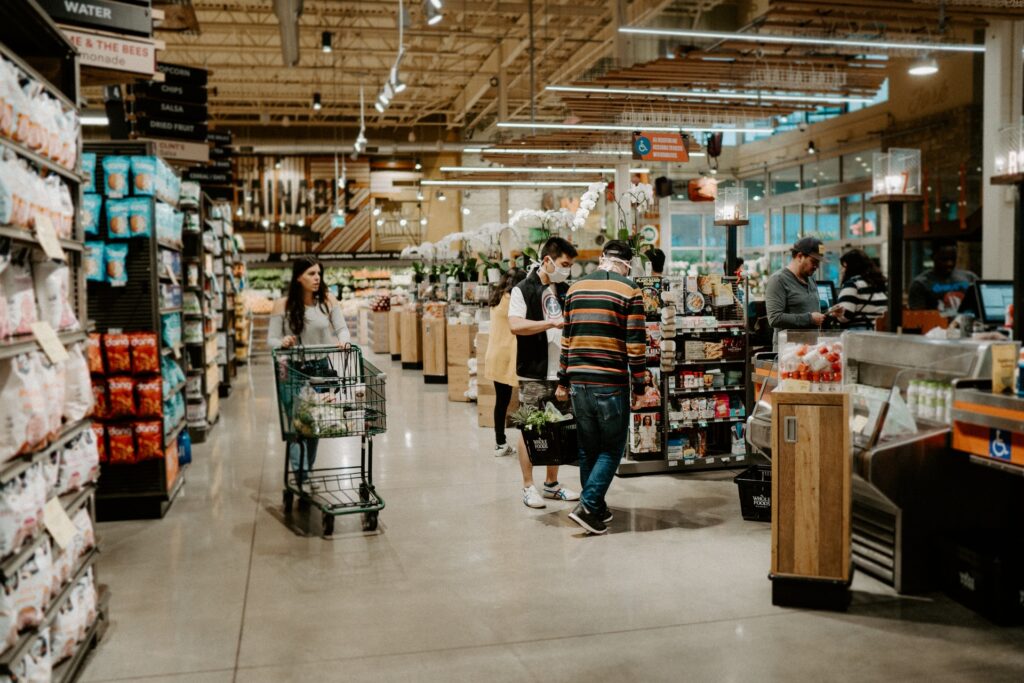
It’s no question that the pandemic has adversely affected the food & beverage industry, from both the supply and demand side. During the pandemic, private investors have been focused on managing their current portfolio growth strategies, with major clients in the hospitality industry experiencing significantly decreased demand for F&B products. But as lockdown and regulations have eased, there has been an uptick of activity.
Private Equity within Food & Beverage
Grant Thornton reports that there has been a notable increase in private equities’ share of deals within F&B in Q3 2021 – of “32 deals announced…44% involved PE, a significant increase compared to 33% in Q2”. In particular, overseas investments in the UK in Q3 2021 rose to 44%, compared to 30% in Q2, showing that foreign investors see increasing potential in UK-based food companies. For example, UK-based cereal bar maker Halo Foods has recently been sold to US-based Peak Rock Capital, with its main product, “Skinny”, low-calorie snack bars expected to be brought to the US market. A key attraction for F&B companies for PE investment is to consolidate their current products and produce new product ideas to remain competitive in their existing markets. This is reflected by the fact that more than 50% of PE transactions in the F&B industry are bolt-on transactions to existing PE-backed food platforms, representing further examples of PE acting as consolidators in the food space.
The Push for ESG Growth and Healthier Options
The F&B market is inevitably affected by the current drive for sustainable supply chains and the consumer demand for healthier and locally-sourced options. Firstly, investors are looking to grow sustainable brands. A prime example is the stratospheric success of Blackstone-backed Oatly, a now globally established brand for alternative dairy. Consumer interest in plant-based diets and animal rights has been rapidly increasing, explaining the rise of interest in plant-based companies this quarter, which accounted for 22% of F&B deal activity. A notable deal that took place this year was Unovis Asset Management’s £10.1 million acquisition of Wicked Foods, a market-leading UK plant-based food company, with the aim to bring their plant-based meats, meals, and desserts to the US. There has also been an increase in niche funds, such as Veg Capital, that invests exclusively in food technology for plant-based replacements for meat and animal products, as well as distribution systems to increase consumer access to vegan foods.
Alternatively, PE firms are getting involved in making established brands more sustainable and creating healthier products to cater to the changing demand. Last month, Paris based PAI Partners’ acquired PepsiCo’s subsidiaries, namely Tropicana and Naked. Managing partner of PAI, Frederic Stevenin, has cited the deal’s motivation as “growing our portfolio of healthier snacks, zero-calorie beverages, and products like SodaStream which are focused on being better for people and the planet.” PepsiCo has already made noticeable efforts in sustainable packaging while protecting consumer choice, and PAI Partners’ extensive food & consumer investment portfolio can expand PepsiCo’s previously established distribution of healthier products into the European market. Another example is Unilever’s sale of ‘ekaterra’, its tea business which includes brands like TAZO and Lipton Tea, to CVC Capital Partners for €4.5 billion. There have been numerous complaints about the working conditions of Unilever’s Kenyan tea plantations and claims of negligence on worker protection following the attack on its Kericho plantation amid ethnic violence in 2007. More recently, Unilever has faced backlash regarding automated tea picking and job cuts. However, Pev Hooper, managing partner at CVC Capital, has stated “ekaterra is well positioned in an attractive market to accelerate its future growth, and to lead the category’s sustainable development,” hinting at management changes and an explicit push towards increased sustainability.
Rise in Premium Pet Food
Another interesting surge in deal activity within F&B concerns the subcategory of pet food. Pet ownership in the UK has jumped from 41% to 59%, largely due to people adapting to the pandemic lifestyle. This has led to more consumers increasingly seeking diversified foods for their furry companions. Recently, UK-listed 3i Group has acquired a majority stake in premium pet food manufacturer MPM from London-based private equity firm ECI Partners in a deal valued at £125m. CapVest has also purchased Inspired Pet Nutrition from L Catterton. Inspired Pet Nutrition (IPN) provides a new wet dog food facility, a super-premium baked dog food facility, and a state-of-the-art distribution center. Harringtons, one of IPN’s major brands, has jumped from #6 to #1 in the market for dry foods for dogs during L Catterton’s management. This trend is also seen in the US, where the American Pet Products Association reports that 35% of pet owners are spending more on pet foods in 2020 than in 2019, with an there has been an 11% spending increase. Another firm, Nulo, a Texas-based pet food company that focuses on health enhancing pet foods, has been acquired by Apax Partners to expand into the European markets.
Conclusion
Both past and recent deal activity suggest that the food & beverage industry is increasingly leaning on private equity to cater to the changing consumer demands. As an industry where sustainability has a direct correlation to profits, one can expect further investments into food technology, sustainable packaging, and efficient supply chains. A new niche area to look out for is pet foods, and specifically the development of premium pet snacks to meet changing demand.